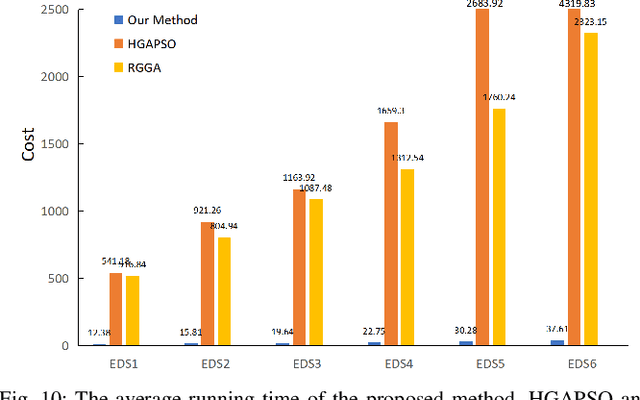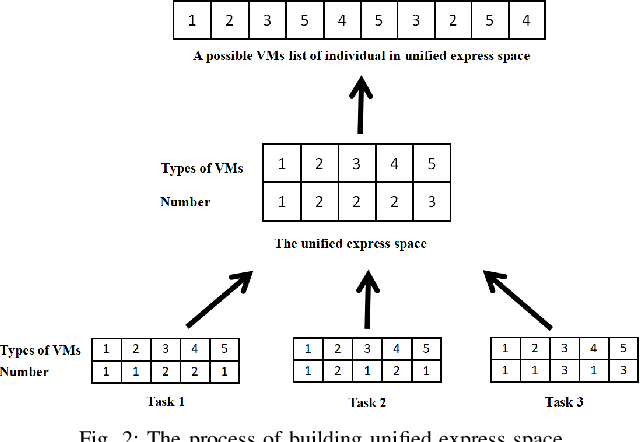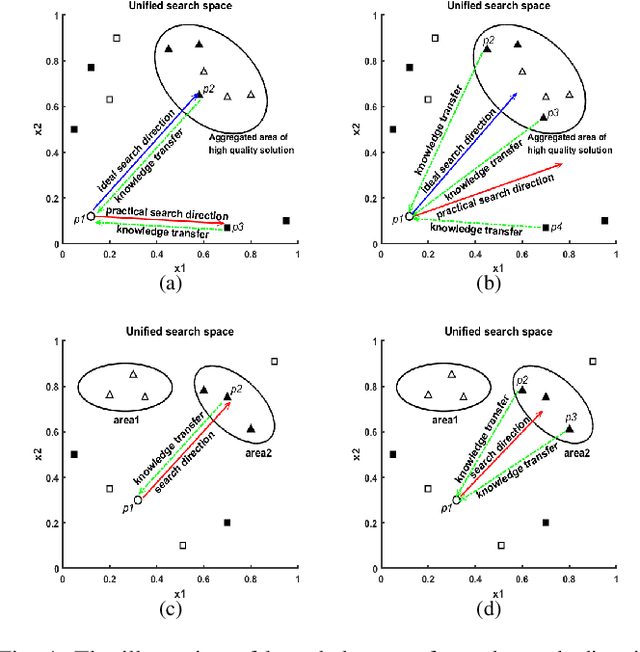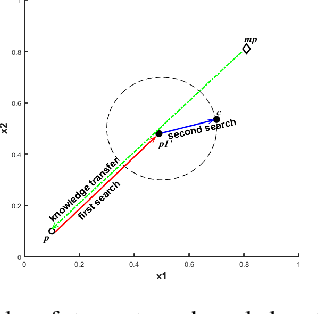Zhengping Liang
Multi-factorial Optimization for Large-scale Virtual Machine Placement in Cloud Computing
Jan 18, 2020



Abstract:The placement scheme of virtual machines (VMs) to physical servers (PSs) is crucial to lowering operational cost for cloud providers. Evolutionary algorithms (EAs) have been performed promising-solving on virtual machine placement (VMP) problems in the past. However, as growing demand for cloud services, the existing EAs fail to implement in large-scale virtual machine placement (LVMP) problem due to the high time complexity and poor scalability. Recently, the multi-factorial optimization (MFO) technology has surfaced as a new search paradigm in evolutionary computing. It offers the ability to evolve multiple optimization tasks simultaneously during the evolutionary process. This paper aims to apply the MFO technology to the LVMP problem in heterogeneous environment. Firstly, we formulate a deployment cost based VMP problem in the form of the MFO problem. Then, a multi-factorial evolutionary algorithm (MFEA) embedded with greedy-based allocation operator is developed to address the established MFO problem. After that, a re-migration and merge operator is designed to offer the integrated solution of the LVMP problem from the solutions of MFO problem. To assess the effectiveness of our proposed method, the simulation experiments are carried on large-scale and extra large-scale VMs test data sets. The results show that compared with various heuristic methods, our method could shorten optimization time significantly and offer a competitive placement solution for the LVMP problem in heterogeneous environment.
A Two stage Adaptive Knowledge Transfer Evolutionary Multi-tasking Based on Population Distribution for Multi/Many-Objective Optimization
Jan 03, 2020



Abstract:Multi-tasking optimization can usually achieve better performance than traditional single-tasking optimization through knowledge transfer between tasks. However, current multi-tasking optimization algorithms have some deficiencies. For high similarity problems, the knowledge that can accelerate the convergence rate of tasks has not been utilized fully. For low similarity problems, the probability of generating negative transfer is high, which may result in optimization performance degradation. In addition, some knowledge transfer methods proposed previously do not fully consider how to deal with the situation in which the population falls into local optimum. To solve these issues, a two stage adaptive knowledge transfer evolutionary multi-tasking optimization algorithm based on population distribution, labeled as EMT-PD, is proposed. EMT-PD can accelerate and improve the convergence performance of tasks based on the knowledge extracted from the probability model that reflects the search trend of the whole population. At the first transfer stage, an adaptive weight is used to adjust the step size of individual's search, which can reduce the impact of negative transfer. At the second stage of knowledge transfer, the individual's search range is further adjusted dynamically, which can increase the diversity of population and beneficial for jumping out of local optimum. Experimental results on multi-tasking multi-objective optimization test suites show that EMT-PD is superior to six state-of-the-art optimization algorithms. In order to further investigate the effectiveness of EMT-PD on many-objective optimization problems, a multi-tasking many-objective test suite is designed. The experimental results on it also demonstrate that EMT-PD has obvious competitiveness.
 Add to Chrome
Add to Chrome Add to Firefox
Add to Firefox Add to Edge
Add to Edge